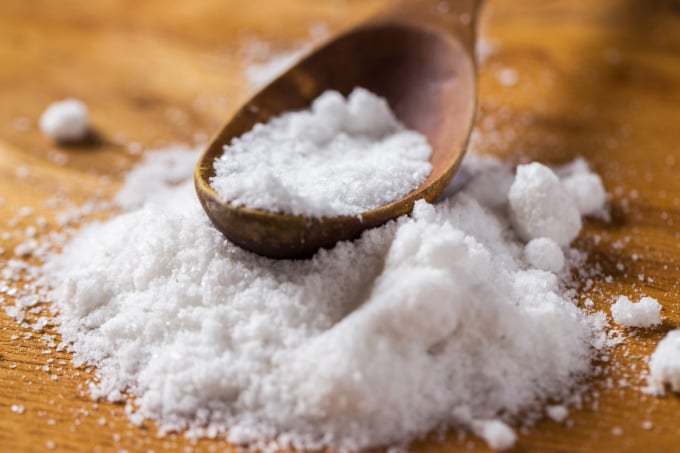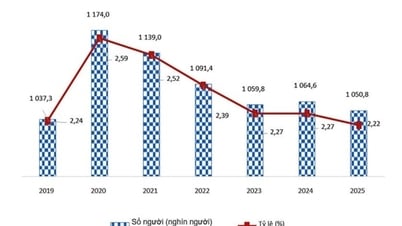My child is old enough to eat solid foods. The family sees that he cannot hold his head steady, so they force him to eat more salt to make him “firmer”. They add a little salt and fish sauce to all the solid foods. Is this right? How should I feed my child solid foods? (Quynh Trang, 35 years old, Thai Nguyen ).
Reply
Babies who are eating solid foods have underdeveloped kidneys, so their ability to excrete salt is poor. Adding too much salt affects the baby's kidney function, causing high blood pressure and cardiovascular disease in the long term. Some studies have shown that babies who eat too much salt (sodium) can suffer brain damage.
Eating salt does not help children absorb calcium, have stronger bones or keep their heads steady. On the contrary, when there is excess sodium, the child's body loses water balance, increasing the risk of excreting excess sodium in the urine, causing the child to lack calcium and reduce height growth. In addition, eating salty foods makes children lose their appetite and become more tired.
In addition, children at this age have very little need for salt, daily food already contains enough salt, for example milk, eggs, meat, fresh vegetables. A diet lacking or having too much salt (sodium) will have a negative impact on children's health. Therefore, when preparing weaning food for children under 1 year old, families should not add salt.

Baby food should not have salt added. Photo: Freepik
Families can refer to the table below to know the salt needs of children recommended by the Ministry of Health :
Age group | Sodium (mg/day) | Salt (g/day) |
0-5 months | 100 | 0.3 |
6-11 months | 600 | 1.5 |
1-2 years old | <900 | 2.3 |
Baby food should be rich in nutrients for the baby's body to develop. Families should feed the baby from little to much, for example, the first 1-3 meals, feed the baby little food, gradually increase the amount of food so that the baby gets used to the new food.
At first, when the baby starts eating solid foods, the family should feed the baby easily digestible foods such as porridge, vegetables and fruits. From 9-11 months, the baby needs to eat enough of the 4 groups including rice, meat, eggs, fish, shrimp, crab, and vegetables. From 1 year old and up, the baby can eat spices, but the amount of salt should not exceed 1g/day.
Families should practice feeding their children bland foods to ensure their health in the future. When adults taste their children's weaning food and find it to their liking, it means it will be saltier than the child's, so season the food slightly or without salt. If you want the food to have flavor, the family can add a little cheese.
On the contrary, families should not feed children sweet porridge to avoid affecting their health; Avoid foods that are too hard, chewy or can cause choking. When preparing weaning food, people should not use regular oils, but should use vegetable oils specifically for children such as walnut oil, canola oil, olive oil... Children should sit and eat with the whole family to learn how to eat, pick up food, and chew food thoroughly.
MSc. Dr. Nguyen Anh Duy Tung
Medical Information Center
Tam Anh General Hospital, Ho Chi Minh City
Source link









































































































Comment (0)